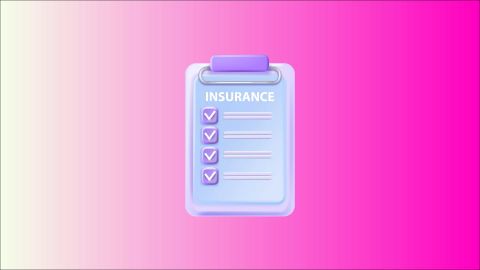Medical costs and hospitalisation charges are rising steadily each year, making sudden health emergencies financially overwhelming. Having a health insurance policy can protect you from these unexpected expenses and offer financial relief.
Read further to understand what health insurance is and how it can benefit you.
Is this conversation helpful so far?
What is health insurance? – Meaning and definition
A health insurance policy offers financial support during medical emergencies. It is a contract between the policyholder and the insurance provider that helps cover expenses arising from illness, injury, or accidents. Under this agreement, the policyholder pays regular premiums, and in return, the insurer covers a range of medical services such as hospitalisation, surgeries, medications, and preventive care. The core idea behind health insurance meaning is to reduce the financial burden of healthcare treatments, ensure timely access to medical services, and promote overall well-being.
Therefore, you must know what is health insurance properly before buying it. Check the eligibility criteria, coverage amount, and inclusions/exclusions of the policy. It will help you make full use of the policy during medical emergencies.
Who needs health insurance?
Health insurance is essential for everyone, providing financial protection against high medical costs. It is particularly important for individuals with chronic conditions, families with dependents, and those who seek to mitigate the risk of unexpected health expenses.
Different types of health insurance policies
There are various types of health insurance policies designed specifically to cater to individual requirements. These policies cover a range of medical expenses. Here’s the list of the different health insurance explained in detail.
Individual health insurance
Individual health insurance covers the medical expenses of an individual. This type of health insurance policy covers the specific needs of the individual or the policyholder. It covers all kinds of medical expenses, including hospitalisation, medical tests, surgeries, and doctor visits. Additionally, it allows individuals to customise the policy as per their healthcare needs and budget.
Family health insurance
Family health insurance or a family floater health insurance designed for families work in group policy manner. It offers a single policy for the entire family, making it convenient to manage and save money compared to individual policies for each family member. The sum insured in the policy is distributed among all the enrolled members.
Senior citizens health insurance
Senior citizens health insurance specifically provides coverage for individuals above the age of 60 years. Health insurance for senior citizens covers pre-existing conditions and provides cashless hospitalisation benefits. It also offers higher coverage for specific medical conditions that may arise due to age. You also get coverage for critical illnesses.
Maternity health insurance
Maternity health insurance covers the medical expenses of childbirth and pregnancy-related complications. It offers coverage for prenatal and postnatal expenses, delivery charges, and newborn baby expenses.With maternity health insurance, policyholders can also benefit from cashless hospitalization, ensuring smooth and hassle-free medical procedures. Additionally, it covers unforeseen medical emergencies that may arise during pregnancy or childbirth, providing peace of mind during this important time.
Critical illness health insurance
Critical illness health insurance, as the name suggests, covers medical expenses for critical illnesses such as cancer, stroke, heart attack, and other life-threatening illnesses. It provides a lump-sum amount to the policyholder if diagnosed with a critical illness for the treatment and diagnostic tests expenses. By opting for Critical Illness Health Insurance, you can alleviate the financial strain that comes with critical health challenges, allowing you to focus on your recovery. It is a valuable safety net that offers peace of mind during medical emergencies.
Group health insurance
Group health insurance covers the medical expenses of a group of people, such as employees of a company or members of a society. Many employers offer group health insurance as one of the major employee benefits to the employees. This type of policy offers coverage for hospitalisation, medical tests, surgeries, and doctor visits, among others.
Top-up health insurance
Top-up health insurance provides additional coverage over and above the existing health insurance policy. It covers the medical expenses that exceed the sum insured in the existing policy.
What are benefits of a health insurance policy
You get the following benefits on a health insurance policy:
- Critical illness cover
Many health insurance plans offer a critical illness add-on or built-in benefit, covering life-threatening conditions like cancer, stroke, or heart disease. Upon diagnosis, a lump-sum payout helps manage treatment costs and lifestyle changes without financial stress. - Easy cashless claims
With a wide network of partnered hospitals, health insurance providers offer cashless claim facilities. This means you won’t need to pay out-of-pocket during hospitalisation—your insurer directly settles the bill with the hospital, ensuring a stress-free experience. - Added protection
A health insurance policy acts as an additional layer of protection beyond your regular savings. It safeguards your finances during unforeseen medical events, helping you focus on recovery rather than worrying about treatment expenses. - Tax savings
Premiums paid towards a health insurance policy qualify for tax deductions under Section 80D of the Income Tax Act. You can claim deductions for yourself, your family, and even your parents, helping reduce your overall tax liability. - Cashless claims
Cashless claim services eliminate the need for immediate cash payments during emergencies. With pre-approval from your insurer and treatment at network hospitals, the financial burden is eased, ensuring prompt care without delays. - Coverage for pre-existing illnesses
After a specified waiting period, health insurance plans also cover pre-existing diseases like diabetes, hypertension, or asthma. This ensures continued care and cost coverage for chronic conditions you may already have. - Quality healthcare
Health insurance gives you access to quality medical services, including top hospitals and specialist consultations. This helps you receive timely and better treatment, improving recovery outcomes and long-term health. - Helps deal with rising medical costs
With healthcare costs increasing every year, a health insurance policy helps offset the financial impact. It covers major expenses like surgeries, diagnostics, and post-hospitalisation care—making quality treatment more affordable.
Who needs health insurance?
Health insurance is essential for everyone, providing financial protection against high medical costs. It is particularly important for individuals with chronic conditions, families with dependents, and those who seek to mitigate the risk of unexpected health expenses.
How does health insurance work?
The process starts with the policyholder paying a premium to the insurance company based on factors such as age, health history, lifestyle habits, etc. Once the policy gets active, it covers medical expenses such as hospitalisation, surgeries, medical tests, and consultations expenses.
You can choose a cashless hospitalisation or reimbursement of the medical expenses incurred. For cashless hospitalisation, you only need to visit the insurer’s network hospital to avail the treatment. The insurer will take care of the hospital bills directly, and you do not have to worry about any immediate payment to the hospital. For reimbursement claim, you need to first pay the hospital bills and submit the relevant documents to the insurance company for reimbursement.
However, it is important to note that every policy has certain limitations and exclusions, which the policyholder should know. Additionally, the policyholder should regularly review their policy to ensure that it caters to their evolving healthcare needs.
Why should I purchase a health insurance policy?
Purchasing a health insurance policy is essential for safeguarding your financial well-being and ensuring access to quality healthcare. It provides a safety net during medical emergencies, covering the high costs of treatments, hospitalisations, and medications. By having a health insurance policy, you can focus on recovery without the added stress of financial burdens.
- Financial protection: A health insurance policy provides a financial cushion during medical emergencies by covering the high costs of treatments, surgeries, and hospitalisations. Without insurance, medical expenses can quickly deplete savings, leading to financial strain. Insurance ensures you’re protected from unexpected healthcare costs.
- Access to quality healthcare: With health insurance, you have access to a broad network of hospitals and doctors, ensuring timely and appropriate treatment. It enables you to choose better healthcare facilities and specialists without worrying about immediate costs, leading to improved health outcomes.
- Cashless treatment: Many health insurance policies offer a cashless treatment option, allowing policyholders to receive medical care without making upfront payments. The insurance provider directly settles the bill with the hospital, making the process convenient and stress-free during emergencies.
- Tax benefits: Purchasing health insurance not only safeguards your health but also helps reduce taxable income. Under Section 80D of the Income Tax Act, you can claim deductions on premiums paid for yourself, your spouse, children, and even dependent parents, providing financial savings.





